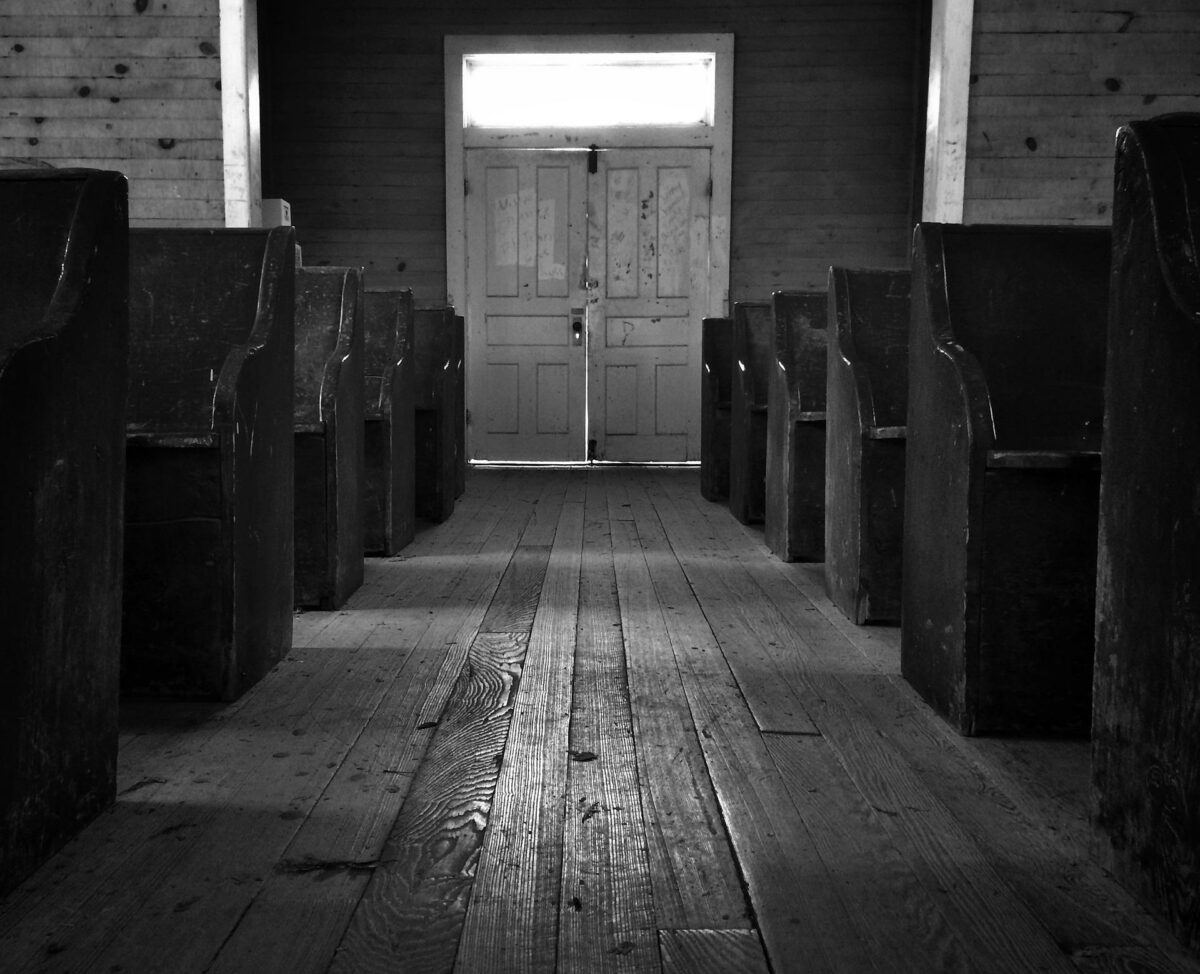It is sad to think of the number of professing Christians who, in the very face of the Holy Spirit’s solemn warning, habitually forsake the assembling of themselves together. They would probably acknowledge the claims of the Lord Jesus upon their love and obedience; they would perhaps admit that He purchased them with His blood; they might even confess that they are bound by the highest, the most sacred, and the most lasting considerations and obligations to pay Him at least the outward respect of public worship; and yet upon the slightest excuse, or no excuse at all, they absent themselves from the stated services of His house. They certainly cannot be ignorant of the fact that it is the will of their Master to have them meet socially to honor Him, as well as to hold communion with Him privately. “Where two or three are gathered together in My name, there am I in the midst of them,” He says (Matthew 18:20), although there may be only two or three thus gathered.
It was to the disciples assembled within closed doors that Jesus Christ revealed Himself on the evening after His miraculous resurrection from the dead, and Thomas, who was absent, missed a great blessing (John 20:19-25). Not separately, but together, the apostles “all continued with one accord in prayer and supplication, with the women, and Mary the mother of Jesus, and with His brethren,” waiting for the presence and power of the Holy Ghost (Acts 1:14). “When the day of Pentecost was fully come, they were all with one accord in one place” (Acts 2:1); “and being let go, they went to their own company” (Acts 4:23). Paul and his companions “went out of the city by a river side, where prayer was wont to be made” (Acts 16:13, 16); “and upon the first day of the week, when the disciples came together to break bread, Paul preached unto them” (Acts 20:7).
There are many other proofs and illustrations of the assembling of the saints for instruction, prayer, worship, or discipline, and this plainly according to the mind and word of God. “In the name of our Lord Jesus Christ, when ye are gathered together, and my spirit, with the power of our Lord Jesus Christ” (1 Corinthians 5:4). In the commemoration of the Savior’s death it was enjoined, “when ye come together to eat, tarry one for another” (1 Corinthians 11:33); and it was the custom with His sanction that “the whole church be come together into one place” (1 Corinthians 14:23). Those who refused thus to come together, departing from the faith and mocking at the promise of His coming, are described as “they who separate themselves, sensual, having not the Spirit” (Jude 19). On the other hand, in an evil and trying time, “they that feared the Lord spake often one to another: and the Lord hearkened, and heard, and a book of remembrance was written before Him for them that feared the Lord, and that thought upon His name” (Malachi 3:16).
But if there was no other precept about it in all the Word of God, surely it is enough to read the plain admonition of the Holy Ghost, “Not forsaking the assembling of ourselves together, as the manner of some is; but exhorting one another: and so much the more, as ye see the day approaching” (Hebrews 10:25). Here it stands as an unchangeable part of the inspired Scriptures; and the professing Christian who deliberately disregards it may well ask himself the question: whether he really has passed from death unto life, or whether he has only a name to live, while dead (Revelation 3:1). Nothing but good can follow from giving heed to the direction of the Spirit of truth; nothing but evil can result from disobedience.
The Hebrew Christians who had fallen into this manner or custom of forsaking the assembling of themselves together might have pleaded as a sufficient excuse the danger of attending public service. They were called to endure a great fight of afflictions, made a gazing-stock both by reproaches and persecutions, and forced to take the spoiling of their goods. They might have urged, therefore, that under the circumstances it would be better to worship God privately and secretly; but in the face of all their reasonings towers up the commanding authority of the eternal Spirit, “Not forsaking the assembling of ourselves together, as the manner of some is.”
What, then, shall be said of those who have far less excuse for absenting themselves from the meetings of the brethren? They may try to persuade themselves that they do not stand in need of instruction and that no benefit can be derived from public worship, owing to the private opportunities of improvement which they possess. But against all arguments, however satisfactory to themselves, is the imperative order of God, “Not forsaking the assembling of ourselves together, as the manner of some is.” This is enough for every true believer, and it will scatter his difficulties and objections to the wind in a moment.
Alas! There is much reason to conclude that worldliness has come into the hearts of those who now forsake the assembly of the saints, and worldliness is the forerunner of spiritual lethargy, and spiritual lethargy is the precursor of final and fatal apostasy, unless the sovereign grace of Christ awakes from the terrible slumber. This does not in the least interfere with the present and certain salvation of the real believer, but it surely ought to arouse all from dangerous sleep to watchful exhortation; and so much the more as we see the day approaching. It is a day of such overwhelming moment to all, that the day of Jerusalem’s destruction is but its faintest type.
The only other place in which the term “assembling together” is found lends to it additional solemnity and tenderness: “Now we beseech you, brethren, by the coming of our Lord Jesus Christ, and by our gathering together unto Him” (2 Thess. 2:1). Surely the assembling together here has some bearing upon the joy of our gathering together there and upon the measure of our Lord’s approval of our earthly service and testimony. It is not, therefore, for His followers to meet in order to please themselves but to please Him, and we may be assured that every such meeting, though it be worthless as the giving of a cup of cold water, He will remember.
— Dr. James H. Brookes (1830-1897), the author of the above article, was a pastor, author, editor, and conference speaker who was one of the founders of the Niagara Bible Conference. Brookes was an early biblical fundamentalist and dispensationalist who continually emphasized the imminent return of Jesus Christ and the need for believers to separate from apostasy and be ready for Christ’s return.




Comments are closed.